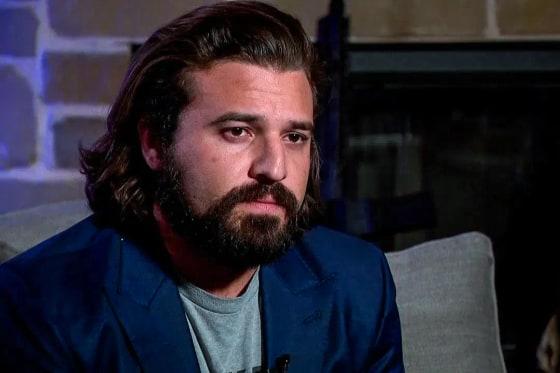Brandon Herrera Emerges as a Strong Challenger to Tony Gonzales in Texas Congressional Race
Brandon Herrera, a well-known firearms educator and YouTube personality, is rapidly gaining traction in his bid to unseat incumbent U.S. Representative Tony Gonzales in Texas. Harnessing his extensive digital platform and unwavering commitment to Second Amendment rights, Herrera’s campaign is redefining voter engagement by blending traditional conservative principles with innovative online outreach. This evolving political contest highlights the increasing influence of social media and grassroots activism in shaping electoral outcomes in Texas.
Herrera’s campaign benefits from several key strengths that distinguish him from Gonzales:
- Robust Online Presence: With millions of followers across YouTube, Instagram, and TikTok, Herrera effectively mobilizes a younger, digitally connected electorate.
- Grassroots Organization: A rapidly expanding volunteer base energizes local communities and precincts.
- Innovative Fundraising: Crowdfunding and small-dollar donations have significantly bolstered his campaign finances.
This fusion of digital savvy and ground-level activism challenges the traditional political establishment and shifts the conversation around gun rights in Texas.
| Candidate | Primary Strength | Campaign Emphasis |
|---|---|---|
| Brandon Herrera | Digital Influence | Advocacy for Gun Rights |
| Tony Gonzales | Incumbency and Experience | Military Service & Border Security |
How Gun Rights Advocacy is Transforming Voter Mobilization and Campaign Tactics
The recent surge in voter participation in this Texas congressional race is largely driven by the effective use of gun rights advocacy, prominently championed by Brandon Herrera. As a digital influencer with a strong foothold among younger voters, Herrera’s campaign leverages platforms like YouTube and TikTok to deliver authentic, issue-focused messaging that resonates with conservative and libertarian audiences. This approach marks a departure from conventional campaigning by prioritizing direct engagement and transparency.
Campaign teams are increasingly investing in multimedia content, influencer collaborations, and targeted advertising centered on firearm rights, which not only boosts voter turnout but also enhances fundraising efforts. The following table summarizes the strategic elements reshaping political campaigns in this context:
| Strategic Component | Details | Anticipated Outcome |
|---|---|---|
| Social Media Campaigns | Utilizing influencer-driven content on platforms favored by younger demographics. | Expanded reach among voters aged 18-35. |
| Issue-Focused Fundraising | Direct appeals tied to gun rights to encourage grassroots donations. | Growth in small-dollar contributions. |
| Community Engagement | Organizing local events such as rallies and firearm exhibitions to build support. | Enhanced voter loyalty and increased turnout. |
Contrasting Policy Positions: Herrera vs. Gonzales in a Competitive Texas District
In this highly contested district, Brandon Herrera and Tony Gonzales present distinctly different policy platforms that reflect broader ideological divides. Herrera advocates for expansive gun rights, opposing regulations he perceives as limiting lawful ownership. Conversely, Gonzales supports a more balanced approach, endorsing sensible firearm regulations aimed at reducing violence while respecting constitutional protections. Their differences extend into other critical areas, illustrating the varied priorities within the electorate.
- Gun Legislation: Herrera favors deregulation; Gonzales supports measured controls.
- Immigration: Herrera calls for stricter border enforcement; Gonzales promotes comprehensive reform.
- Economic Policy: Herrera emphasizes tax reductions and deregulation; Gonzales focuses on infrastructure and social programs.
- Healthcare: Herrera advocates for market-driven solutions; Gonzales backs expanded Medicaid and access.
| Policy Area | Brandon Herrera | Tony Gonzales |
|---|---|---|
| Second Amendment | Advocates for unrestricted rights | Supports regulated, balanced rights |
| Border Security | Prioritizes increased patrols and physical barriers | Emphasizes technology and humanitarian approaches |
| Tax Policy | Calls for broad tax cuts | Favors targeted relief alongside investments |
| Healthcare | Opposes government-run programs | Supports Medicaid expansion and broader access |
Guidance for Texas Voters on Navigating Gun Legislation and Candidate Positions
For voters in Texas, understanding the nuances of gun legislation and candidate stances is essential amid a complex and culturally significant debate. Beyond campaign promises, it is important to review candidates’ legislative records, public statements, and endorsements from reputable gun rights and public safety organizations. Awareness of recent legislative changes and judicial rulings in Texas will also help voters assess how each candidate’s policies might affect both individual freedoms and community safety.
Essential factors for voters to consider regarding Texas gun policy:
- Examine voting records on key firearm legislation and amendments.
- Evaluate how candidates balance Second Amendment protections with law enforcement needs.
- Look for endorsements from credible grassroots and statewide organizations.
- Participate in local debates and forums to hear candidates’ direct responses on gun issues.
- Stay informed about potential legislative shifts following the election that could impact gun laws.
| Legislative Topic | Candidate’s Position | Potential Consequences |
|---|---|---|
| Open Carry Regulations | Supports expansion of rights | Broader gun rights with ongoing safety debates |
| Background Checks | Opposes federal mandates | Potential gaps in screening processes |
| Red Flag Laws | Mixed support | Ongoing debate over due process protections |
Conclusion: A Pivotal Election for Gun Rights and Political Representation in Texas
The escalating contest between Brandon Herrera and incumbent Tony Gonzales has captured the attention of voters and political analysts alike. Herrera’s growing influence signals a shift in Texas politics, where digital engagement and grassroots activism are increasingly pivotal. As the election draws near, the outcome will not only determine representation in this key district but also shape the future discourse on gun rights and legislative priorities in the state. Voters will be watching closely as both candidates intensify their efforts to secure support in the weeks ahead.




